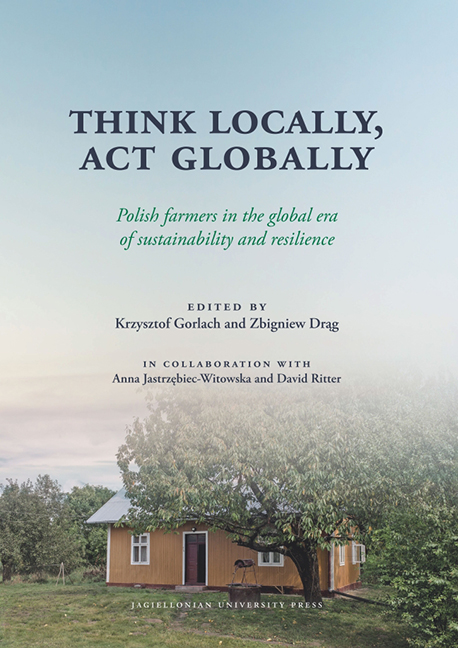Book contents
- Frontmatter
- Contents
- Family Farming: A foreword
- An Introductory Letter from the First Editor: Where the horses, cows, and even cats had their own names
- Part One Theoretical and Methodological Considerations
- Part Two Changes in the Post-Communist Transformation
- Part Three Diversification of Farmers’ Strategies
- Part Four Some Independent Studies
- Conclusion: Some Final Remarks from the First Editor
- Afterword: Renewing a Sociology of Agriculture
- Biograms
Chapter Thirteen - Food Safety and Food Security from the Perspective of the Functioning of Farms in Poland
Published online by Cambridge University Press: 16 July 2022
- Frontmatter
- Contents
- Family Farming: A foreword
- An Introductory Letter from the First Editor: Where the horses, cows, and even cats had their own names
- Part One Theoretical and Methodological Considerations
- Part Two Changes in the Post-Communist Transformation
- Part Three Diversification of Farmers’ Strategies
- Part Four Some Independent Studies
- Conclusion: Some Final Remarks from the First Editor
- Afterword: Renewing a Sociology of Agriculture
- Biograms
Summary
Introduction
Every social system has been known to have, and will continue to have, special institutions focused on fulfilling people's food needs. Since people started to develop sedentary lifestyles and engage in agriculture, the responsibility for providing sufficient quantities and quality of food has fallen on farmers. Thousands of years ago, people selected animals and used selected seeds in order to have control over where, how, and in what quantity their food was produced (see also Ploeg, 2016). The knowledge of animal husbandry and plant cultivation passed from generation to generation gave farmers relative autonomy in society because they were in charge of food security for the entire community. In early history, farmers as a social class played a significant role in the economic and political life of territorial communities and enjoyed a high social position related to the importance of their profession. However, with time and civilizational development, the inventions enabling farmers to cultivate the land more effectively, and thus allowed for the development of other areas of social life, without having to concentrate exclusively on the fulfillment of basic needs. As a result of these processes, the social position of farmers started to lose importance to such an extent that from free and respected people they became like slaves, bound to the land that was once “the feeding mother” and now appeared at times to be a “lifetime curse.” Even though, in the 21st century, those who produce agricultural commodities (i.e., mostly raw materials for the food industry) are less often referred to as farmers and more commonly called agricultural producers, they still play an important role in the global food system and food security (see also Bello, 2011; Ziegler, 2013).
Food security was for many years determined by three variables: population size, farmers’ hard work, and the “kindness of nature.” For many centuries this last factor had the biggest impact on the quantity and quality of the food produced (see also Kowalczyk, 2009, 2014). However, humanity did whatever was possible to learn to acquire independence from nature. One of the most important innovations was the field irrigation system that, in many countries, has been functioning continuously for over three thousand years (see Koocheki & Ghorbani, 2005; see also Grochowska, 2014).
- Type
- Chapter
- Information
- Think Locally, Act GloballyPolish farmers in the global era of sustainability and resilience, pp. 561 - 590Publisher: Jagiellonian University PressPrint publication year: 2021

